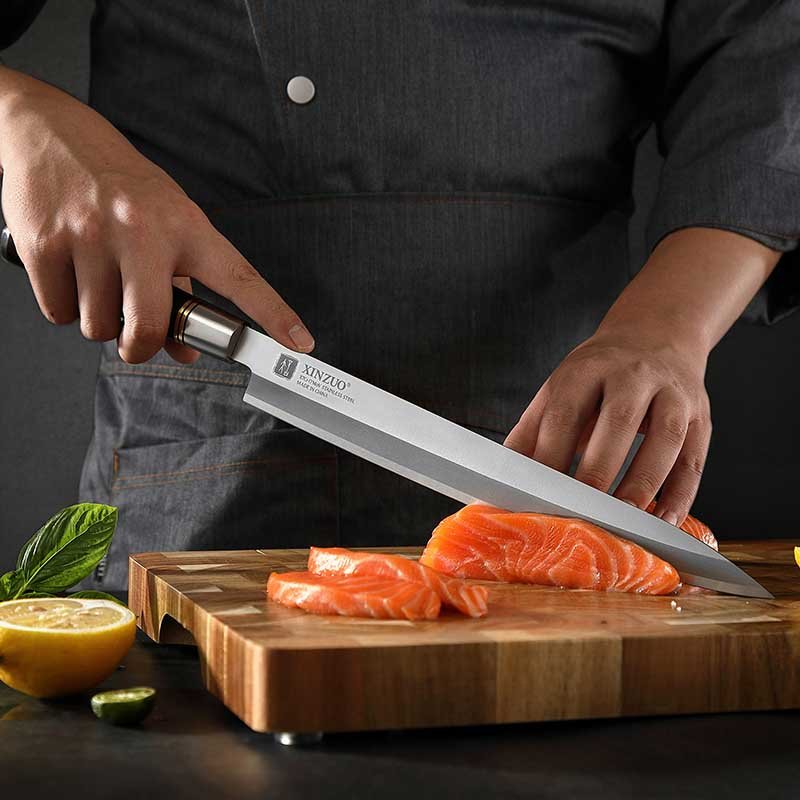
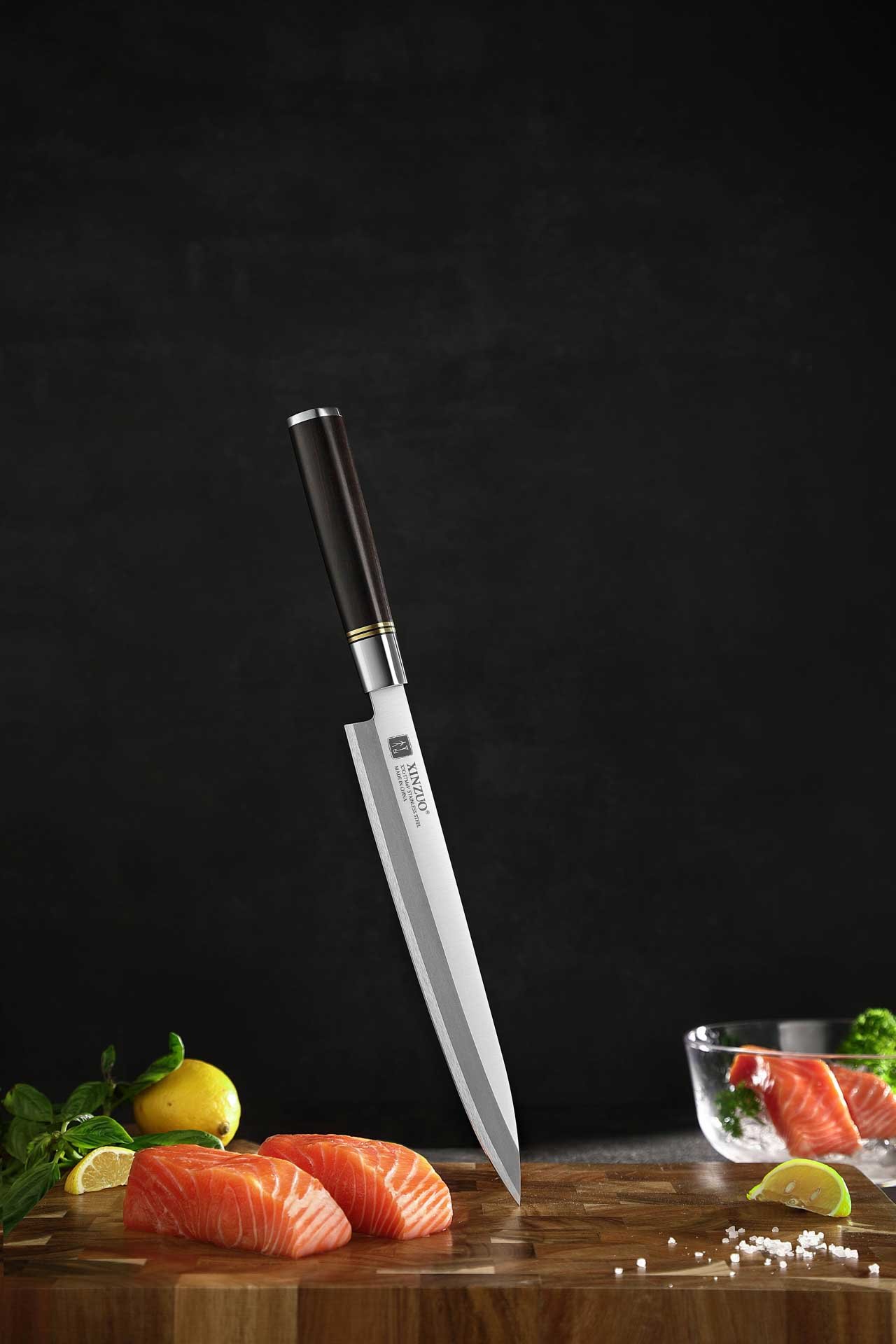
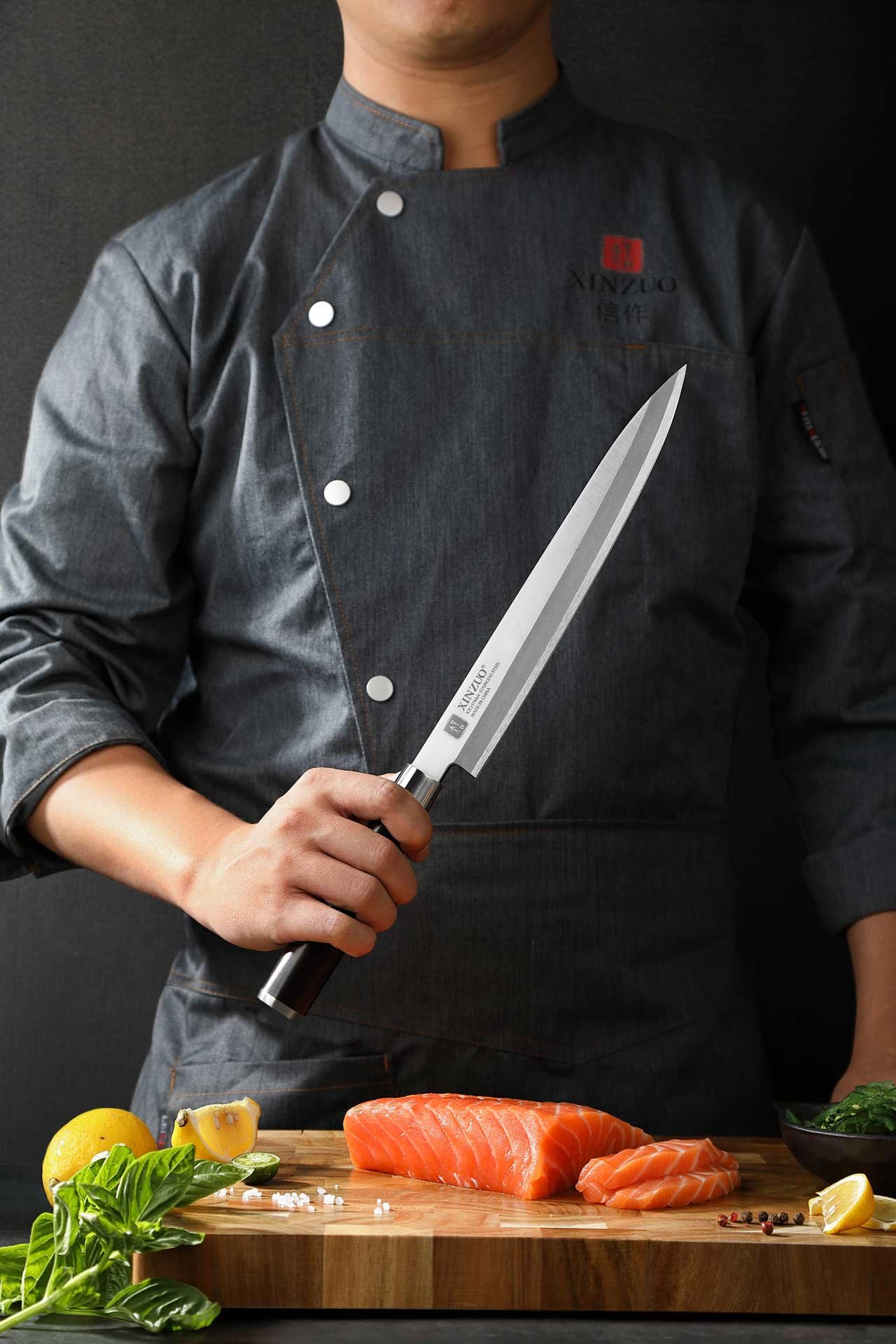
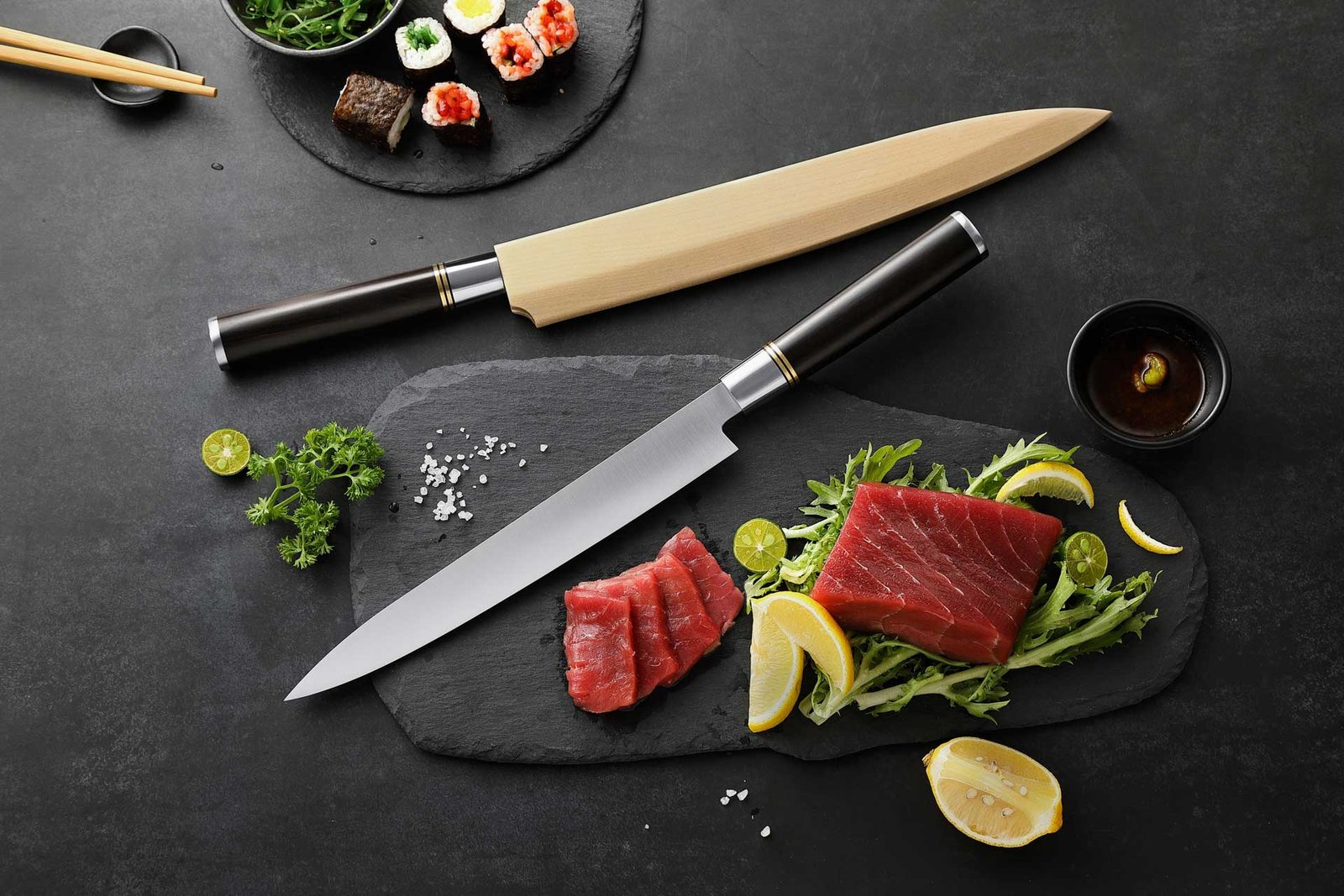

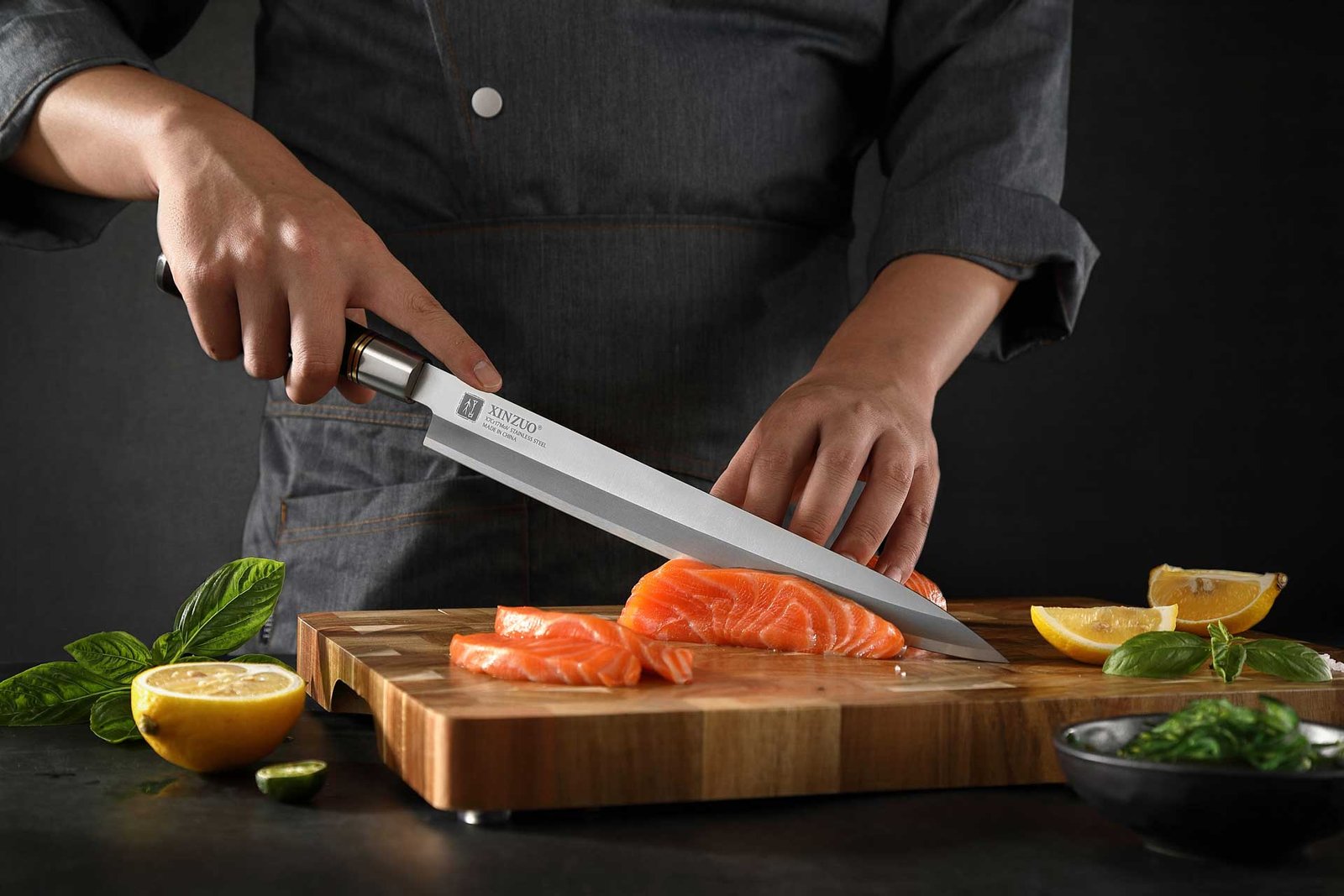
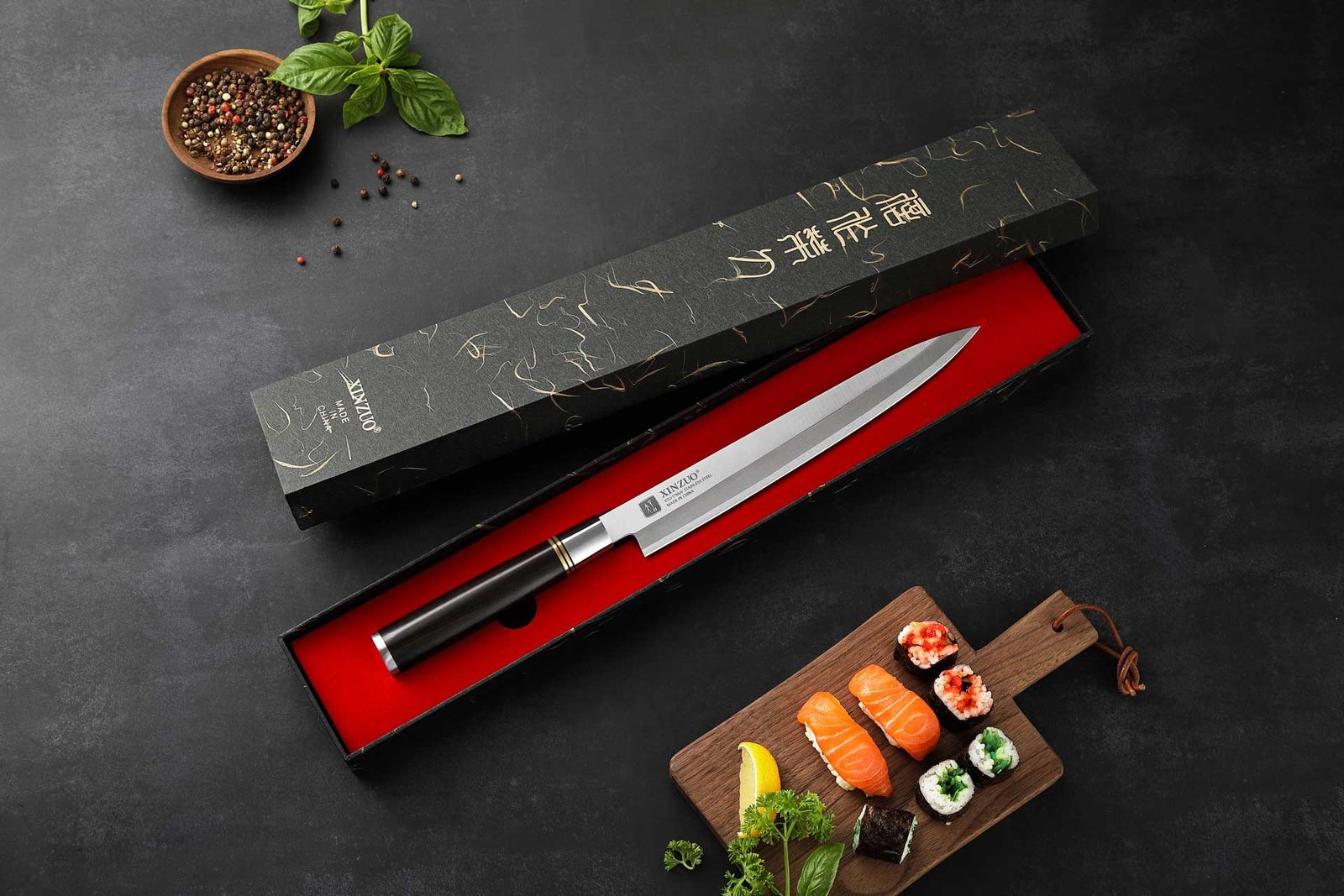
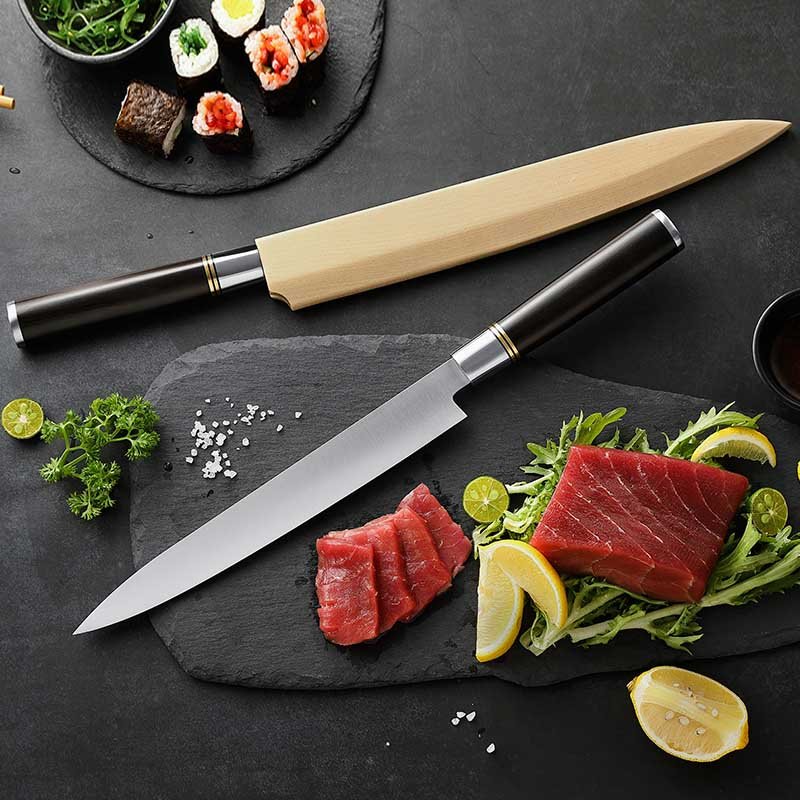
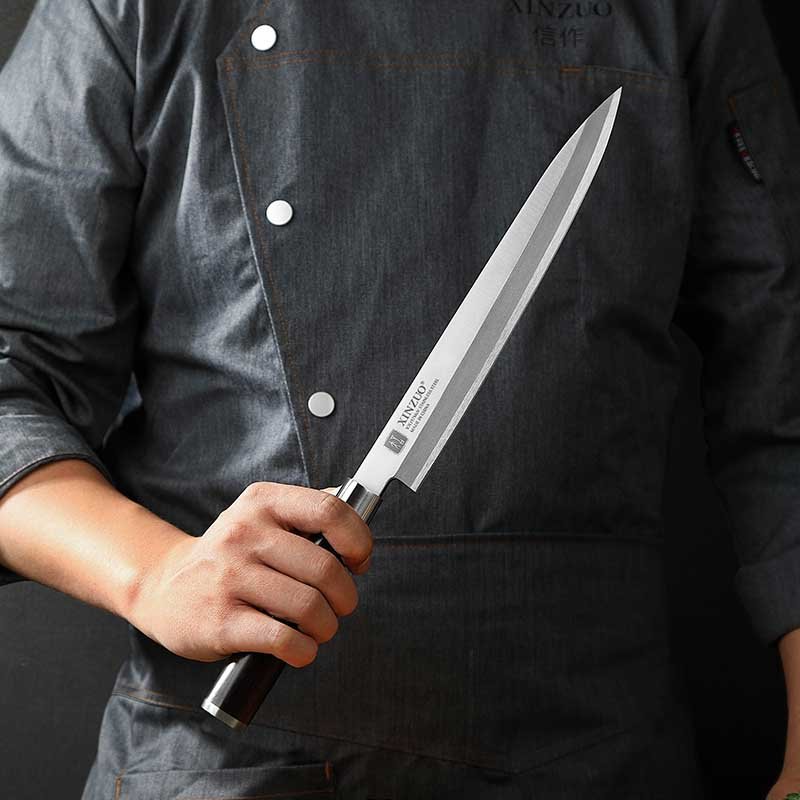
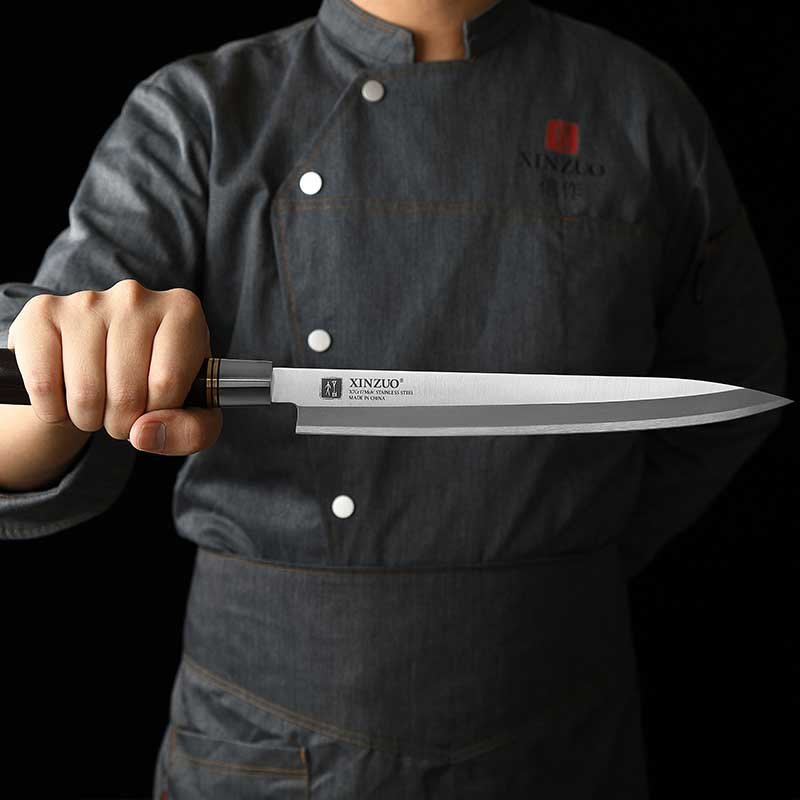
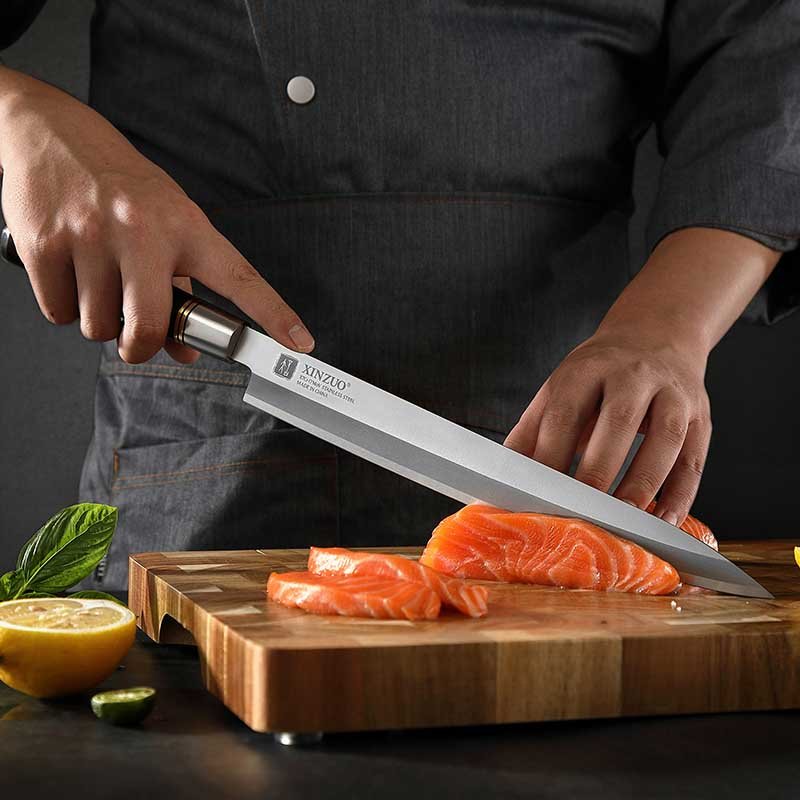
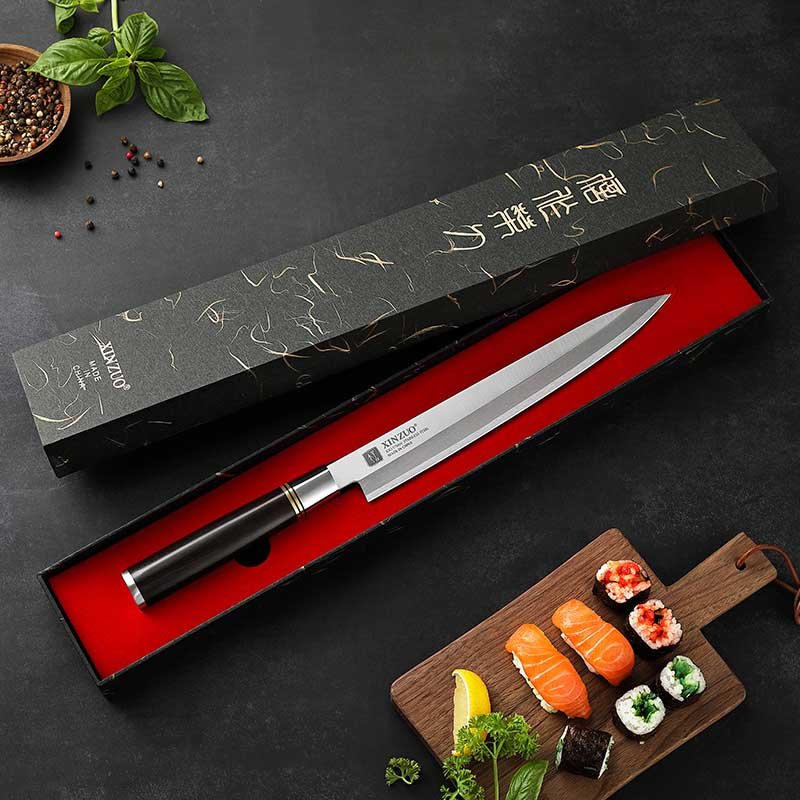
SE 240mm Sashimi Knife
SE sashimi knife series are the traditional knife shapes to cut raw fish, featuring single-bevel blades in two main shapes, Deba knife and Sashimi knife. Sashimi knives come in three sizes to adapt to different cuts:240mm sashimi knife, 270mm sashimi knife, 300mm sashimi knife.
The SE Series blades are made from Electroslag remelted 7Cr17MoV forged Steel with hardness of 58±2 HRC. Electroslag remelting is a special heat treatment which doubles the solidification speed of ingots, reducing the number and particle size of primary carbides, thereby improving the toughness of the material and enhancing the wear resistance. The concave blade grinding process, called “Urasuki” in Japanese helps reduce the contact surface between the food and the blade, prevents the food from sticking to the blade, and reduces food compression, preserving the very delicate features of raw fish. The blade surface is sandblasting and with a fine metal texture.
The handle is made in ebony wood. It is mainly produced in subtropical and African regions. It has high texture hardness and is particularly appreciated for its strong wear resistance. The wood fiber is fine, without pores and with good moisture resistance. These features and its unique aesthetic look make Ebony wood a great and beautiful material for knife handles.

260-269g Knife Weight
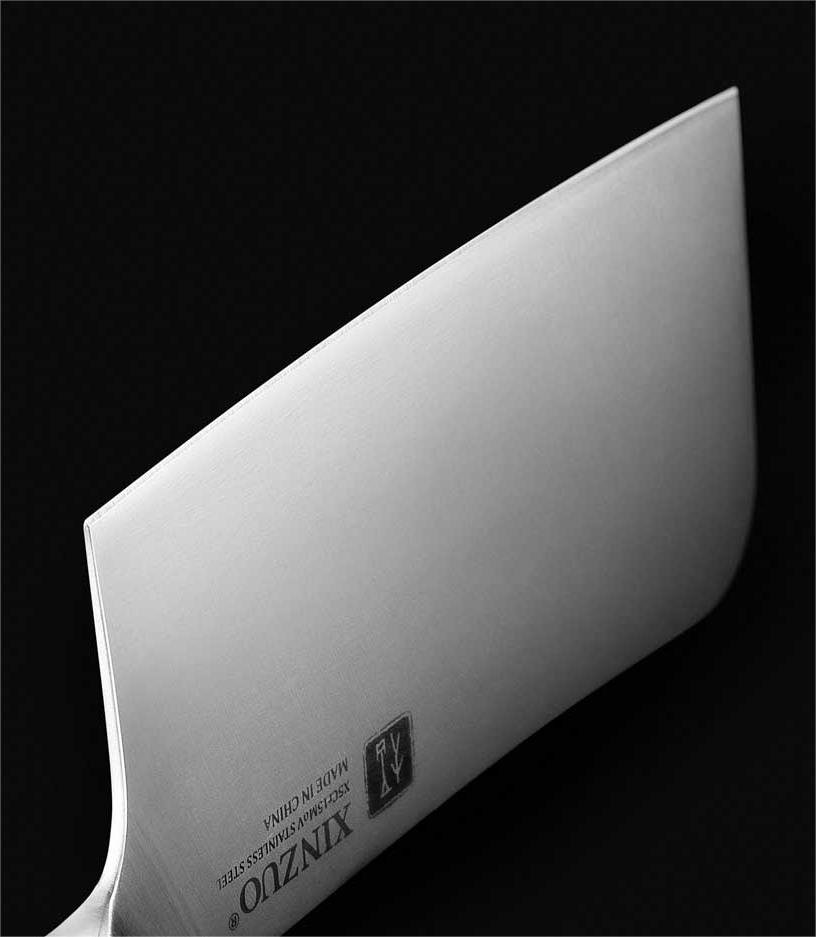
4.5mm Blade Thickness

56-58 Steel Hardness

8Cr14MoV
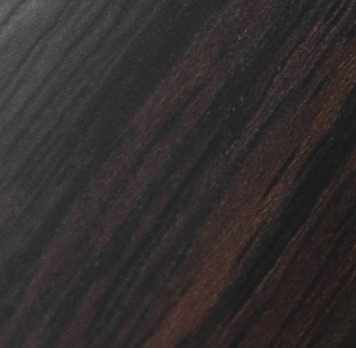
Ebony Wood Handle
Single Bevel
SE sashimi knife series are the traditional knife shapes to cut raw fish, featuring single-bevel blades in two main shapes, Deba knife and Sashimi knife. Sashimi knives come in three sizes to adapt to different cuts:240mm sashimi knife, 270mm sashimi knife, 300mm sashimi knife.
The SE Series blades are made from Electroslag remelted 7Cr17MoV forged Steel with hardness of 58±2 HRC. Electroslag remelting is a special heat treatment which doubles the solidification speed of ingots, reducing the number and particle size of primary carbides, thereby improving the toughness of the material and enhancing the wear resistance. The concave blade grinding process, called “Urasuki” in Japanese helps reduce the contact surface between the food and the blade, prevents the food from sticking to the blade, and reduces food compression, preserving the very delicate features of raw fish. The blade surface is sandblasting and with a fine metal texture.
The handle is made in ebony wood. It is mainly produced in subtropical and African regions. It has high texture hardness and is particularly appreciated for its strong wear resistance. The wood fiber is fine, without pores and with good moisture resistance. These features and its unique aesthetic look make Ebony wood a great and beautiful material for knife handles.

